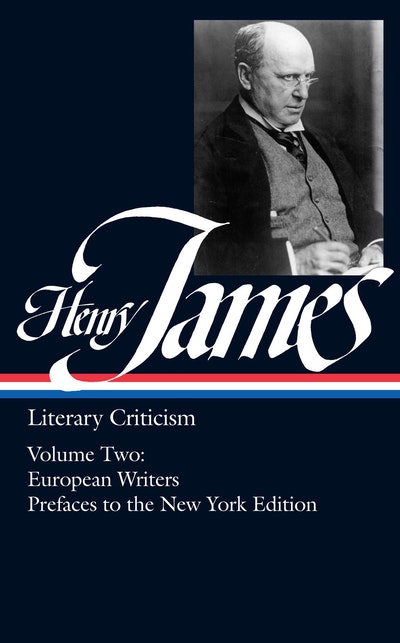Henry James, renowned as one of the world’s great novelists, was also one of the most illuminating, audacious, and masterly critics of modern times. This Library of America volume is one of two volumes of the most extensive collection of his critical writings ever assembled, with many pieces never before available in book form. It includes reviews of a great number of European writers, especially French writers, along with more general essays and the Prefaces Henry James wrote for the New York Edition of his works, published between 1907 and 1909.
More than one hundred reviews and essays are gathered by author, so that readers can trace the development of James’s complex, meditative, and highly volatile attitudes toward a wide spectrum of literature. James reviews the formidable Honoré de Balzac (with his “huge, all compassing, all desiring, all devouring love of reality”), Gustave Flaubert (“a pearl-diver, breathless in the thick element while he groped for the priceless word”), and Ivan Turgenev, the Russian visitor in Paris, with whom James felt great personal affinity, even though Tugenev “lacked the immense charm of absorbed inventiveness.”
James delivers his critical judgments with great elegance and point, especially when he discusses the performance of other critics like Hippolyte Taine and Augustin Sainte-Beuve, and, of course, he can be wonderfully acerbic. An early moralistic essay on Baudelaire finds Poe “vastly the greater charlatan of the two, and the greater genius.”
James brings his critical zest, exhilaration, and independence of judgment to bear on writers as diverse as Alphonse Daudet, George Sand, Victor Hugo, Guy de Maupassant, Théophile Gautier, J. W. von Goethe, and Gabriele D’Annunzio.
Readers will find, in the complete collection of the Prefaces, one of literature’s most revealing artistic autobiographies, a wholly absorbing account of how writing gets written, and a vision of the possibilities for fiction which critics and novelists of later times will find immensely instructive and liberating.
LIBRARY OF AMERICA is an independent nonprofit cultural organization founded in 1979 to preserve our nation’s literary heritage by publishing, and keeping permanently in print, America’s best and most significant writing. The Library of America series includes more than 300 volumes to date, authoritative editions that average 1,000 pages in length, feature cloth covers, sewn bindings, and ribbon markers, and are printed on premium acid-free paper that will last for centuries.














